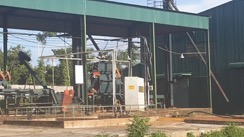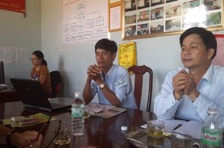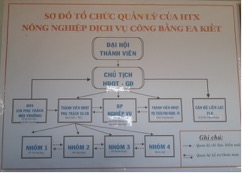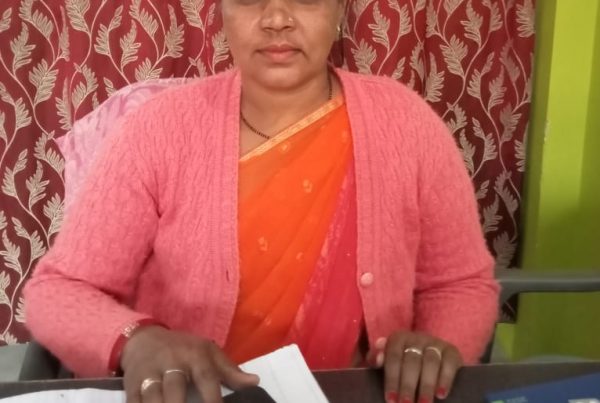Ea Kiet Fair Agriculture Cooperative, Vietnam
When Mr. Hauhiko Kuroda, president of the Asian Development Bank, visited the office of the Ea Kiet Fair Agriculture Cooperative farmers in the Dak Lal province of Vietnam, it was a hive of productivity and efficiency, with a focus on sustainable business and economics. Little surprise there. The Ea Kiet is the first smallholder farmers in the Central Highlands to own and operate their own Fairtrade-certified coffee washing machine. This was made possible thanks to the support of the Asian Development Bank project, as part of The Viet Nam Challenge Fund run by the British Department for Internal Development and the ADB.

The coffee processing and watering plant
The project is just one milestone in the cooperative’s journey, which started in 2008. That’s when 48 households, with 91 hectares of landholding between them, came together to start the cooperative, with the support of Dak Man Trading company. At that time, barely five per cent of their produce was sold on Fairtrade terms.
Today, 97 households with 183 hectares of land are part of the cooperative. The produce 722 tons of coffee, out of which 40 per cent is sold on Fairtrade terms. Some years, they manage to sell 100 per cent on Fairtrade terms.

Members of the cooperative
In consultation with the local government, the cooperative has invested the Fairtrade Premium on member capacity building. One of the biggest challenges the region has seen is the adverse impact of fertilizers. Which is why the cooperative focused on information dissemination about the ill-effects of chemical fertilizers, on both people and the soil. Part of the Fairtrade Premium also went towards the health care of farmers who have lost limbs because of toxic chemicals. Apart from that, the cooperative has built a four kilometer road to facilitate transport to the market. A house was built for a family belonging to a minority community as well.
It is all business, sustainability, and economics at this co-operative. The farmers are feeling the impacts of climate change and are working towards adaptation with better water management practices such as drip irrigation and water reservoirs. Their focus now is on improving the quality of their coffee.

Business, sustainability and economics are key words for this cooperative
Of course, as this all translates into profits and the youth are realizing that agriculture can be a sustainable option for them as well. The parents are hopeful, and as one farmer said, “Our children leave for job opportunities. But many come back as it is not as good as our agricultural income.”
Contributed by Meenakshi Gairola



